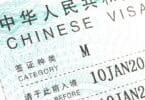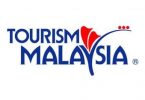This week we complete our review of hotel overcharges, fees and add-ons by focusing on the hotel mini-bar and Wi-Fi access. In particular we will take a look at the recent Consent Decree between Marriott International, Inc. and the Federal Communications Commission [October 3, 2014] providing for a civil penalty of $600,000 “to settle (an investigation) of allegations that Marriott interfered with and disabled Wi-Fi networks established by consumers in the conference facilities at the Gaylord Opryland Hotel and Convention Center in Nashville… in violation of Section 333 of the Communications Act of 1934″. [See Hetter, Marriott fined $600,000 by FCC for blocking guests’ Wi-Fi, at www.cnn.com (10/3/2014)].
Wi-Fi & Minibars
Particularly annoying fees and service charges include (1) Wi-Fi fees (see Perkins, Hotel Wi-Fi: How fast, how costly? (www.chicagotribune.com) (8/26/2014)(“In-room Wi-Fi is the new near-essential hotel requirements these days…(ranking) near the top of special features and amenities that business and leisure travelers crave…And the newest hotel-semi scam is to hype ‘free Wi-Fi’ but offer only very slow connections ‘free’ and ask for premium payment for full-speed connections…This isn’t surprising from an industry that came up with the idea of carving out part of the real price into one or more mandatory fees with some plausible name such as ‘resort fee’), (2) mini-bar charges [see Mimicking the airlines, supra (“At the Liberty Hotel in Boston, a cold can of Coke from the minibar costs $5. That’s just the base price. The fine print on the menu reveals an 18-percent ‘administrative fee’ to restock the bar…Even moving an item in the minibar can generate a fee. The Aria Resort and Casino in Las Vegas, like many other hotels, bills items to guests’ rooms if sensors in the minibar note that they have been removed for more than 60 seconds-enough time, hotels say, to read the nutritional information and make a decision. The Aria goes one step further. It also charges a $25 a day ‘personal use fee’ if a guest puts their own soda or bottled water in the minibar”).
Marriott Blocking Guests’ Wi-Fi
The Consent Decree in Matter of Marriott International, Inc., before the Federal Communications Commission [File No: EB-IHD-13-00011303] [Order Adopted October 3, 2014] provides, in part, as follows: “2. Section 333 of the Communications Act provides that ‘No person shall willfully or maliciously interfere with or cause interference to any radio communications of any station licensed or authorized by or under this Act… [47 U.S.C. § 333]. The [Enforcement Bureau] previously has indicated that the use of jammers to interfere with Wi-Fi transmissions violates Section 333 [FCC Enforcement Advisory: Cell Jammers, GPS Jammers and Other Jamming Devices, Public Notice DA 11-250 (Enf. Bur. 2011)]…The term “Wi-Fi” generally refers to a class of wireless local area network WLAN) devices…Wi-Fi networks enable devices such as laptop computers, tablets, video game consoles and smartphones to connect to the Internet and each other through a wireless network access point”.
Hotspots & MiFi Devices
“3. Although the most commonly recognized wireless network access point is the Wi-Fi router that many consumers have in their homes, a number of portable routers and mobile devices can also serve as a wireless access point that connects to the Internet. Some of these standalone transmitting devices, typically the size of a stack of playing cards, which are referred to as ‘hotspot’ or ‘MiFi’ devices, which connect to the Internet through the mobile data network to which the consumer has subscribed…many smartphones sold today come with built-in Wi-Fi hotspot capabilities. These capabilities allow consumers to create their own personal Wi-Fi network virtually anywhere. Consumers can wirelessly connect Wi-Fi enabled devices, such as laptop computers, to these access points and, through them, access the Internet.”
Marriott’s Internet Access Fees
“4…Marriott makes available various Internet-related services for meeting planners, exhibitors and their customers to use in the Gaylord Opryland meeting rooms and convention center…The Internet-related services that Marriott makes available include high-speed Internet access (wired and wireless), dedicated bandwidth, customer private networks, and on-site technical assistance. The fees for these optional services include charges of $250 to $1,000 per wireless access point being used by exhibitors or customers, depending upon the type of access purchased”.
Marriott’s Containment Capability
“5. Marriott operates a Wi-Fi monitoring system manufactured by a third party that was installed at the Gaylord Opryland. Among other features, the system includes a containment capability that, when activated, will cause the sending of de-authentication packets to Wi-Fi Internet access points that are not part of Marriott’s Wi-Fi system or authorized by Marriott and that Marriott has classified as ‘rogue’”.
Blocking Consumer Hotspots
“6. In March 2013, the Commission received a complaint from an individual who had attended a function at the Gaylord Opryland. The Complainant alleged that the Gaylord Opryland had used wireless technology to prevent him from using his Wi-Fi mobile hotspot in the hotel’s conference center. The Bureau investigated the complaint in order to assess Marriott’s compliance with Section 333 of the Act. In the course of its investigation, the Bureau discovered that one or more Marriott employees has used the containment capability…in a manner that the Bureau believes violates Section 333. Specifically, such employees had used this capability to prevent users from connecting to the Internet via their own personal Wi-Fi networks when these users did not pose a threat to the security of the Gaylord Opryland network or its guests. Subsequent to learning of the Bureau’s investigation, Marriott instructed the properties under its management or control not to use this containment capability in the manner it had been used at the Gaylord Opryland”.
Marriott Compliance Plan
“12…Within thirty (30) calendar days after the Effective Date, Marriott shall establish Operating Procedures designed to ensure that Covered Personnel do not engage in activities described above…13…Marriott shall report any noncompliance with the terms and condition of this Consent Decree within fifteen (15) days after discovery…14…At the same time that it files each Compliance Report, Marriott shall identify whether in the preceding three months Marriott has used the containment capability…at any U.S. property Marriott manages or owns, to classify any access point as ‘rogue’, to contain any access point and/or to de-authenticate devices from connecting to any access points…15…The Company shall file Compliance Reports with the Commission three (3) months after the Effective Date, and every three (3) months thereafter until the Termination Date [3 years after Effective Date]”.
Civil Penalty
“17…Marriott agrees to make a payment to the United States Treasury in the amount of six hundred thousand dollars ($600,000) within thirty (30) calendar date after the Effective Date”.
Conclusion
Hotel guests need to vigilant to the fees they are required to pay and question such fees when and, if, appropriate.
The author, Justice Dickerson, been writing about Travel Law for 38 years including his annually-updated law books, Travel Law, Law Journal Press (2014), and Litigating International Torts in U.S. Courts, Thomson Reuters WestLaw (2014), and over 300 legal articles many of which are available at www.nycourts.gov/courts/9jd/taxcertatd.shtml .
This article may not be reproduced without the permission of Thomas A. Dickerson.






















